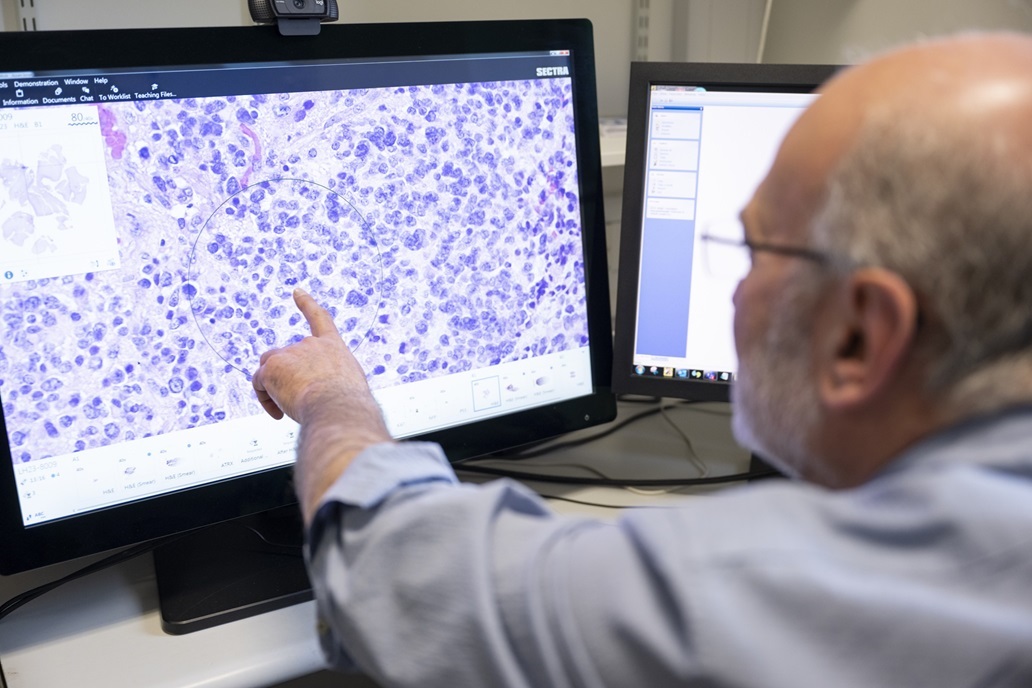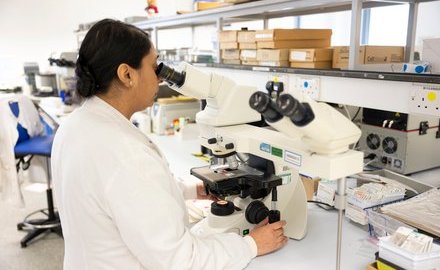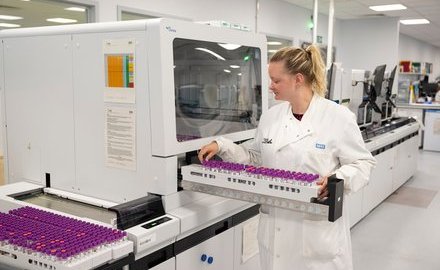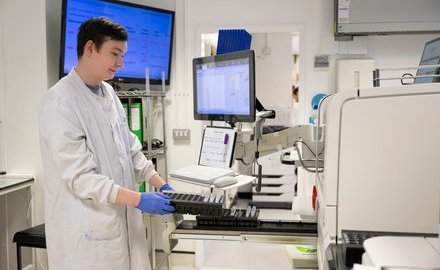Become a neuropathologist
The brain and its diseases are still a long way from being completely understood. Neuropathologists work to improve this understanding. They divide their time between diagnosing illness in patients, investigating causes of death and contributing to neuroscience research.

Neuropathology covers the study of diseases in the central (brain and spinal cord) and peripheral nervous systems, and skeletal muscle. Neuropathologists spend most of their time making diagnoses of tumours, inflammatory disorders and infections.
Like their colleagues in other areas of cellular pathology, they’re responsible for post-mortem analysis, looking at neural (brain) tissues to study dementia, investigate genetic conditions, and assess trauma. Depending on where they work, some neuropathologists may also diagnose eye disease, since the eye is often seen as an extension of the central nervous system.
Neuropathologists are increasingly becoming part of research teams looking into neurological diseases such as Alzheimer’s, Huntingdon’s and Parkinson’s. They’re continually striving make patients’ lives better. Treating malignant or cancerous brain tumours poses a particular challenge, as – despite research – there has been little change in curing the most aggressive forms for over 50 years.
The number of patients wishing to donate their brains for research after death (or donating their brain tissue specimens following surgery) is steadily increasing. Alongside their diagnostic work, neuropathologists play a vital role in collecting and storing these samples in ‘brain banks’, and studying them to support research into brain disease.
What will my working environment be like?
As a neuropathologist, you’ll work in a centre in a hospital, dividing your time between investigating biopsies (using a microscope), carrying out autopsies (working in a mortuary) and going to multidisciplinary team meetings. You’ll provide expert advice to healthcare staff to support how they interpret cases, and may even be called upon as an expert witness in court cases.
Some neuropathologists are actively involved in teaching – mostly to medical students, but also to qualified neurologists, neurosurgeons and others. And some are part of university research teams and supervise MSc, MD and PhD students. University scientists will often ask for neuropathologists’ input so they can research areas to help medicine advance.
What skills will I need?
- Calm under pressure – in most centres, there is a significant demand for making a diagnosis while the patient is still on the operating table, and these cases generally come without warning.
- Good interpersonal skills – you’ll work with colleagues from a variety of disciplines – such as surgeons, physicians, radiologists, oncologists, nurses, physiotherapists and speech therapists – to discuss each tumour case and plan further management.
- An interest in both medicine and research – neuropathology is seen as a bridge between patient-centred clinical neuroscience and research-centred neuroscience.
How will I train?
There are multiple routes into neuropathology, but first you’ll need to complete:
- undergraduate training at medical school
- the UK Foundation Training Programme or equivalent.
- training in histopathology
- specialty training in neuropathology.
Learn more about training to be a neuropathologist.
Explore more careers




